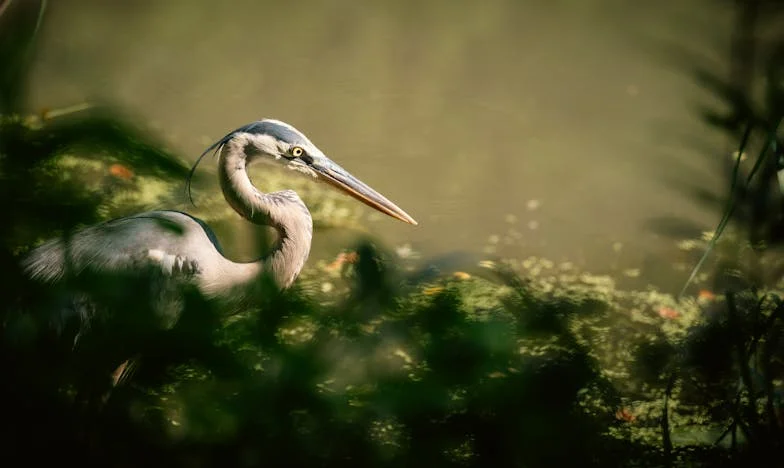Feeding the Pigeons: A Story of Loss, Resilience, and Finding Myself in Another
“Do you think pigeons ever miss someone?” Zoey asked, watching the gray birds battle over crumbs at her feet. Her voice was small but carried an ache I recognized instantly. I didn’t answer right away—my throat tightened as I remembered asking my own mother, years ago, if clouds ever get lonely.
The wind in Lincoln Park was sharp that afternoon, so I pulled my scarf tighter and sat down beside her on the bench. “I think maybe they do,” I finally replied. “Sometimes even birds need someone to come back to.”
She smiled, but it didn’t reach her eyes. I watched her break another piece off the bagel, her hands small and careful. I’d seen Zoey here twice before, always alone, always feeding the birds. The first time, I assumed she was waiting for a parent. The second, I started to wonder. The third time—today—I knew I had to speak.
I’m Emily. Thirty-six, a psychologist, a blogger, a daughter still haunted by the echoes of my own fractured childhood. I write about mental health and resilience, hoping my words help others. But sitting next to Zoey, watching her try to keep her world together with breadcrumbs, I realized how much I still longed for answers myself.
Zoey didn’t talk much at first. But when she did, her words spilled out in a rush, the way secrets do when they’ve been bottled up too long. “My mom went to London,” she said as the wind carried a feather past us. “She married someone else. Dad says she’s ‘starting over.’”
I nodded, my chest aching. “That sounds really hard.”
She shrugged, but her chin trembled. “Dad’s tired a lot. He works at night. Sometimes I eat dinner by myself.”
I remembered the cold silence in my childhood kitchen, the way I’d line up my stuffed animals for company because neither of my parents would be home until late. I wanted to say, “It gets better,” but I didn’t want to lie. Instead, I offered her my thermos of hot chocolate. She hesitated, then took it with a grateful smile.
Over the next few weeks, our routine grew. I found myself carving time out of my schedule to sit with her. She’d tell me about her favorite teachers, her pet mice—tiny, nervous things she’d named after Disney princesses. I’d listen, sometimes offering advice, mostly just being there. My readers loved the anonymous stories—“a little girl in the park, braver than she knows”—but I never used her name or gave away details.
One gray Saturday, Zoey’s father arrived early. He looked exhausted, shadows under his eyes and worry lines deepening as he scanned the playground. He froze when he saw me sitting with Zoey. Instinctively, he bristled. “Who are you?”
I stood, trying to keep my voice calm and friendly. “I’m Emily. I’m a psychologist—I write a blog about childhood resilience. I’ve just been keeping her company while she feeds the birds.”
His suspicion didn’t fade. “She’s not supposed to talk to strangers.”
Zoey squeezed his hand. “She’s not a stranger, Dad. She listens.”
That hit me harder than I expected. I remembered how desperate I’d been for an adult who’d just listen, not fix, not judge. I tried to explain, but he cut me off. “I appreciate your concern, but we’re fine.”
I watched them walk away, Zoey glancing back, her small face crumpled with worry. I felt helpless—just as I had when my own mother left, when my father buried himself in work and forgot how to talk to me.
That night, I poured my heartbreak into my blog. I wrote about the way children carry the weight of their parents’ choices, about how resilience isn’t something you’re born with, but something you build every day, piece by fragile piece. I wrote about Zoey—about myself, really—and the thousands of quiet, lonely dinners that shape who we become.
A week passed. Then another. The bench sat empty. I wondered if her father had forbidden her from coming, if I’d crossed a line I hadn’t meant to. Doubt gnawed at me. Was I helping, or just stirring up pain?
One Sunday, as I sipped coffee and stared at my laptop, an email popped into my inbox: Subject: Zoey. It was from her father.
He wrote, “I read your blog. I didn’t realize how much Zoey needed someone to talk to. I’m trying, but sometimes I feel like I’m failing her. Is it okay if we meet?”
My hands shook as I typed back, “Of course. Let’s talk.”
We met at the park, the three of us. He was quieter in person, but his questions were honest. “How do I help her?” he asked. “How do I make her feel like she matters?”
I told him what I wish someone had told my parents: “It’s not about fixing everything. It’s about showing up. Listening, even when it’s hard. Telling her she matters, over and over, until she believes it.”
He nodded, tears bright in his eyes. “Thank you.”
Zoey hugged me, tight and fierce. “Can we still feed the pigeons?”
“Always,” I promised.
Now, months later, our meetings are less frequent. Zoey and her dad are building new routines. I see them laughing, sharing stories, healing—slowly, but surely.
Sometimes, as I watch them from a distance, I wonder—if I’d had a Zoey in my life back then, would things have turned out differently? If we all listened a little more, loved a little harder, could we mend the pieces we thought were broken forever?
Or maybe the real question is: How many lonely kids are sitting on benches right now, just waiting for someone to listen? What would happen if we paid attention?
